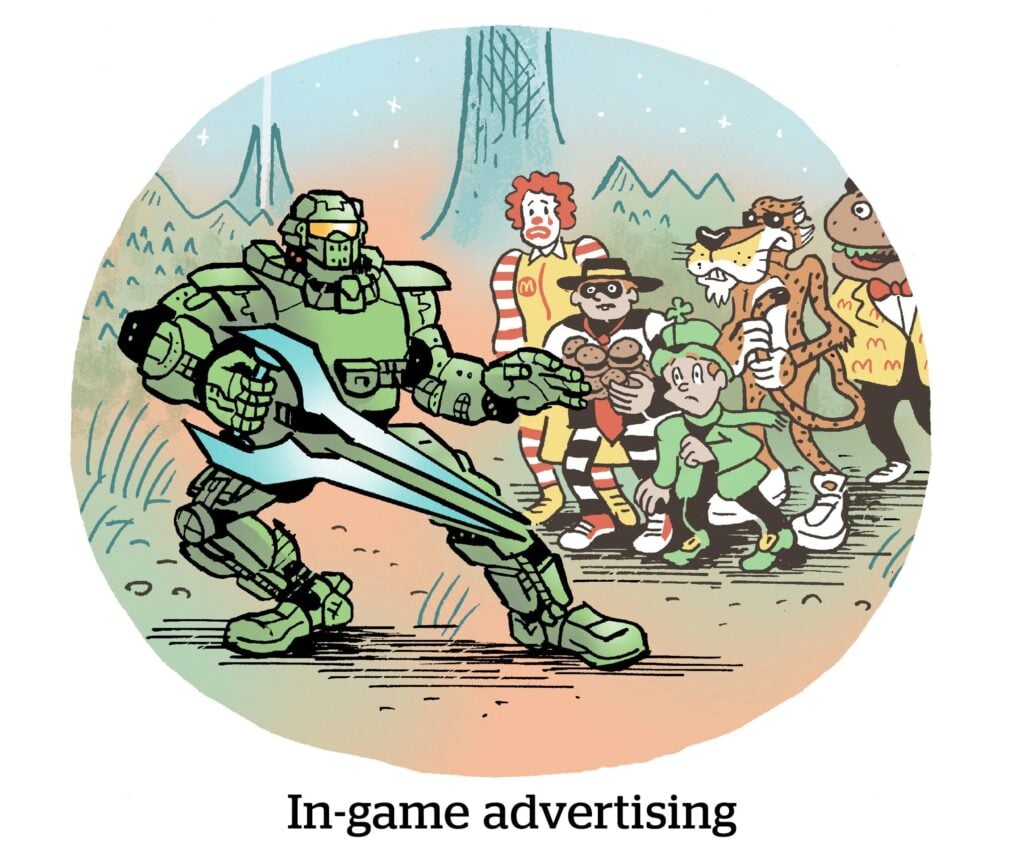Here’s today’s AdExchanger.com news round-up… Want it by email? Sign up here.
The New Shopper Marketing
Pharmacies, groceries and even convenience stores have taken to locking up large swathes of merchandise. As in, behind glass.
Retailers blame theft. But it’s a disingenuous claim, Bloomberg reports. Despite any viral TikTok post or Fox News segment, nationwide in-store shoplifting is not soaring. What has increased, however, is theft of products in transit before they even reach stores.
So what gives with the lock and key?
Bloomberg notes the apparent randomness one experiences while walking through chains like CVS, Walgreens and Target that have wholeheartedly embraced shelf lockups. One moisturizer is behind bars while another at twice the price sits free and clear.
Meanwhile, lots of pricey items like home office supplies, toys and home improvement products roam free – but the underwear at Target is locked up?
The consistent note is that brand-name items are the ones a store associate must be summoned to unlock.
What Bloomberg does not note, though, is that retailers often barricade well-known brands that have items for which they sell their own private-label alternatives. It’s a tactical play. Your preferred shampoo brand may need a store associate to bring a key, but the lookalike clone sold by the store at half the price sits there proudly with no glass partition in the way.
Bing A Long Time Gone
Last week it came out that Reddit is now blocking all web crawler access to its site, effectively cutting off all search engine results – except, of course, via Google, which had already brokered a deal with Reddit for access.
Reddit has a point. Companies had been training AI products on its data without permission, and Google was willing to pay up to $60 million a year. Those other companies weren’t.
Speaking with The Verge, Reddit CEO Steve Huffman calls out Microsoft, Anthropic and Perplexity in particular. They “act as though all of the content on the internet is free for them to use,” he said.
But Microsoft is challenging this narrative. As 404 Media reports, Microsoft’s head of search, Jordi Ribas, claims that it’s possible to block crawling from Microsoft AI products while still keeping content accessible to Bing search results.
Are these the first back-and-forths of a public blow-up or just the messy prologue to an eventual deal? Hard to say. But even if Microsoft forks over some money, other search engines will still be left in the cold.
Building ’Blox
Roblox reported Q2 earnings on Thursday, although there were scant updates about its nascent ad business.
That’s not surprising, considering CEO David Baszucki told investors during the company’s Q1 earnings call in May that advertising “will not be material this year.”
There were a couple of tidbits from this past quarter worth noting, however.
Cumulative brand activations on Roblox’s platform as of Q2 totaled more than 400. That’s more than double the number of brand activations that had run on the platform as of this time last year, Baszucki said.
He also expressed support for the two kid-focused privacy protection bills that passed the Senate this week, KOSA and COPPA 2.0. “We’re very supportive of legislation that helps ensure safety and privacy,” Baszucki said in response to an investor question. “It’s been the foundation of our company ever since we started.” (Too bad House Republican leadership won’t be bringing the Senate’s version of KOSA to the floor.)
Responding to another investor, Baszucki emphasized that Roblox’s ads biz isn’t targeting “low hanging fruit,” but rather going after “big strategic opportunities.”
A main priority is building toward validating closed-loop attribution for brand awareness and digital and physical sales. Doing so should help Roblox court advertisers and generate more repeat business, he said.
But Wait, There’s More!
Venu, the sports-centric streaming service from Disney, Fox and Warner Bros. Discovery, will cost around $42.99 per month. [Variety]
Consumers are less likely to buy products marketed with artificial intelligence, according to one study. [Futurism]The three-way battle to be the top DSP is heating up between Google, Amazon and The Trade Desk. [Ad Age]
Twitter disappears from the Mac App Store. [TechCrunch]
















